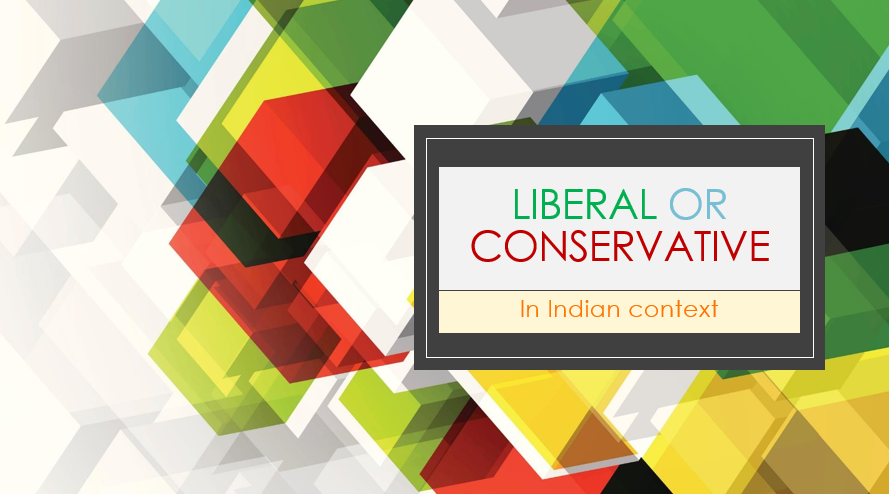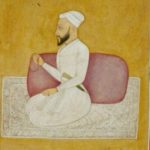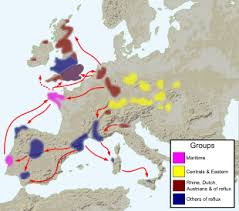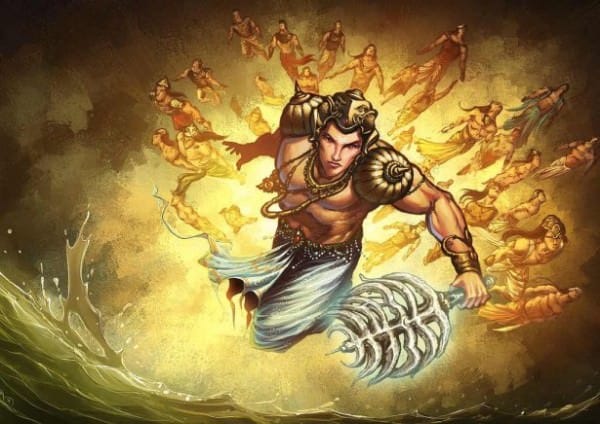
This blog post was triggered by a Twitter exchange with Akshay Alladi where he questioned why I identify with the label liberal. A lot of people have – on this blog as well as on Twitter or in person have labeled me a Hindutva liberal or closet Sanghi (from the left) or a Hindutva rebel, yet I personally don’t feel comfortable with those labels. Maybe it is positive tribalism on the Saffron side or parochial wokism on the left.
Akshay also referred to me in his blogpost about Liberalism vs Conservatism and I promised I would also come up with an elucidation of my position. Before I go into attempts at formulating my position, a fair warning – I am not a particularly deep thinker on matters of philosophy and do not have an intellectual bent. I get bored with long essays and books about philosophy and religion, it’s the interactions of these abstract ideas with politics, people, and histories (as an art/science) that interests me than the ideas themselves.
It is fair to get some personal biases (which may appear contradictory) I hold out of the way
- I am a staunch Republican and Secularist. In my early twenties years, I was more partial towards the Laicite as I grow old I become more partial towards the British or American style of secularism. (Though the recent events in France have made me reconsider my position).
- I have had a very low opinion of Religions in the 21st century in general and Monotheisms in particular.
- I have some sympathies with Savarkarite Hindutva (not RSS) and I have often been accused of being a closet Sanghi by leftists.
- Though I think of myself as a patriot who is well aware of British exploitation of India, I am an Anglophile. I adore the Brits with their language, literature, culture, models of governance (Westminster model). I don’t have shame in saying “Anglo West is the best”.
I would like to explain my identification with liberalism in three progressive strains.
Roots and Personality:
The TED talk by Jonathan Heidt is also a good watch on this topic. The presentation points to a study about how liberals rate Harm/Fairness higher than Authority/In group loyalty/ Purity. In those 5 fields, I would firmly identify as a liberal. Yet I am partial to a moral relativistic framework for roots of human morality over morality which claims to be self-evident (Maybe with the exception of the Golden Rule).
I don’t hold purity and especially ritual purity as an important virtue. In general more accepting of things that make me uncomfortable. I am less certain and more flexible in my views and positions. Whether or not this is a liberal quality (or just an outcome of uncertainty and skepticism) is debatable, yet it makes me more open to the opinions I don’t hold or find unpalatable. Additionally Atheism, rejection of traditional wisdom when in the conflict in the Zeitgeist puts one on the liberal side in the liberal-conservative divide in many cases.
However, if it’s the uncertainty that makes me liberal, it’s the cynicism that pulls me slightly on the conservative side. I do not believe that the extremes to which liberal democracies have gone in Europe – wrt Capital punishment, Human rights are either pragmatic or even “humane”.
While the above argument is reasonable, I feel it misses the point that the context and the stage of society one find themselves in, as a determinant of one’s position on the Liberal v Conservative scale. Hence I would go supplement the above moorings with the following context.
Indian society:
Even before my engagement with Politics of Liberalism and Conservatism, I have always intuitively associated with liberalism than conservatism. Being a radical atheist, a guilt-ridden savarna and a wannabe feminist has meant that in my family and friend circle I was always the most “Progressive” voice – of course, this is in comparison to more conservative voices.
While there are many things in Indian society worth conserving, it’s the adverse effects of these very things that bother me. The idyllic Indian village is home to both the best and the worst that Indian culture has to offer. One of the good things being the social safety net offered by caste and kin connections and the worst being the rigid institution of caste and sexism which is rampant in such settings. For example – I would not wish to conserve the Indian Joint family – in my worldview that structure has more cons than pros in the 21st-century world we live in. And more importantly, these caste and kin networks are anathema to individual rights and freedoms. If the concepts of personal space and privacy are considered important, one of the ways to achieve this would be loosening the bonds of caste and kin networks.
As Indian society currently stands on balance I would want the society as a whole to progress even if it means sacrificing some things that are good on their own. The conservative position here would be to encourage focusing on conserving traditions while interacting with modernity. The debate between Tilak and Agarkar, Gandhi, and Ambedkar are wonderful examples of such strife in our history, and I would in both cases firmly identify with Agarkar/ Ambedkar’s position. (Though I admire Tilak and Gandhi).
As alluded to in my post on Brahmanical Patriarchy. I personally abhor the traditional treatment of women by religion. In the comment thread, Srikanta K noted the slippery slope that leads from critiques of Brahmanism from Women’s’ rights POV, could lead to the destruction of tradition or demonization of brahmins. My position is exactly the opposite, I focus on the same issue with a different slippery slope, the one which our societies have actually witnessed in history. I can jettison traditions when they conflict with my morality or worldview – even these very traditions may have a net positive impact on society.
However, this position depends vastly on the current state of Indian society I find myself in. From what I know of British and Western societies – I would be markedly less “liberal” if I were in those societies. In other words, I might want to conserve the society the west was a few years ago instead of wanting an identity-focused woke revolution.
Indian Politics and Personalities (Litmus tests):
Complimentary to this would be how one related to national politics, issues, and personalities. A year ago I read the Gita Press and the Making of Hindu India. It is not only a fascinating window into the extraordinary life of Hanuman Prasad Poddar but also a compilation of how Indian leaders responded to the writings, thoughts, and work of Gita Press and Poddar. Gandhi, Rajendra Prasad, Sardar Patel, and even Lal Bahadur Shashtri (along with numerous others) are referenced in the book as having a positive outlook towards the Gita press initiative and reciprocally the Gita press was positive towards these individuals. Conspicuous by their absence are Nehru and Savarkar, while Ambedkar is given somewhat harsh treatment by Gita Press – especially the magazine Kalyan. Incidentally, the three Indian thinkers whose thoughts I relate to most are Nehru, Ambedkar, and Savarkar. While this is a weird group to look up to, but the modernist and rationalist (may I say Liberal ?) zeal in all these individuals that most appeals to me today. The fusion of these thinkers might create a good ideological role model in my thoughts. Personally, I would be most at home with a political outfit that takes Nehru’s liberalism with a pinch of Savarkar’s reformist and nationalist zeal while sticking to the constitutional democracy based on a hotch-potch of western models that Ambedkar held dear and all the while being particularly skeptical of Islam as a religion.
While I don’t deny that India is an ancient civilization (Dharmic for a lack of a better term), in its current Avatar, India is a nation-state of the Westphalian model, and though there may be flaws in this model IMO this model is vastly superior to all previous models known to this land or any land for that matter. Not to go all Niall Ferguson here, but I am partial to the view that the rise of the Western civilization is not just correlated with Western models of governance and economy (classical liberalism) but a consequence of it.
Another way to look at this question could be like a Y/N Test on current issues. Some current polarizing issues and my stance on them as follows:
- CAA – I don’t support it in its current Avatar
- Sabrimala – I hope women enter the shrine and are accepted by society in my lifetime. I am skeptical of SC acting as it did in the issue but don’t empathize with the activism around Sabrimala. I can expect a fair flack on this issue – particularly on this blog – but it is as it is. Though I accept my position as a non-believer doesn’t carry as much weight.
- Jallikattu – I find the animal rights activism absurd and in unnecessary conflict with traditions and my position here could be classified as conservative.
- Cow slaughter – Would be partial to Cow smuggling being treated as an agricultural issue and not a religious one, even though it’s constitutional. Either way, I am not particularly vocal about it.
- 370 – Based on the knowledge I have I welcome the change.
- Free speech – Would love American-style free speech in India.
- Bhima Koregaon/ JNU Arrests – Find them draconian.
- Stricter regulations of crackers – Would welcome.
On balance, based on the above issues, my position would be firmly liberal on the liberal vs conservative scale. This is not an accurate assessment in a broad sense, but a consolidation of the above thoughts in a much-needed context. Without context, these labels are mere abstractions, and hence not very useful and not necessarily transferable in a different context. In a state with a just and efficient rule of law, I would probably not identify with liberalism as much, for, in such a state, the tools and mechanisms for the needed change in society can be achieved more easily. But I am not living in such a state and hence would be firmly a Liberal.
Postscript :
I would not be very liberal with comments that arent constructive and civil.
 You can also support the podcast as a patron. The primary benefit now is that you get the podcasts considerably earlier than everyone else. This website isn’t about shaking the cup, but I have noticed that the number of patrons plateaued a long time ago.
You can also support the podcast as a patron. The primary benefit now is that you get the podcasts considerably earlier than everyone else. This website isn’t about shaking the cup, but I have noticed that the number of patrons plateaued a long time ago.


![The Koran: A Very Short Introduction (Very Short Introductions Book 13) by [Michael Cook]](https://m.media-amazon.com/images/I/51VVdH+RbTL.jpg)